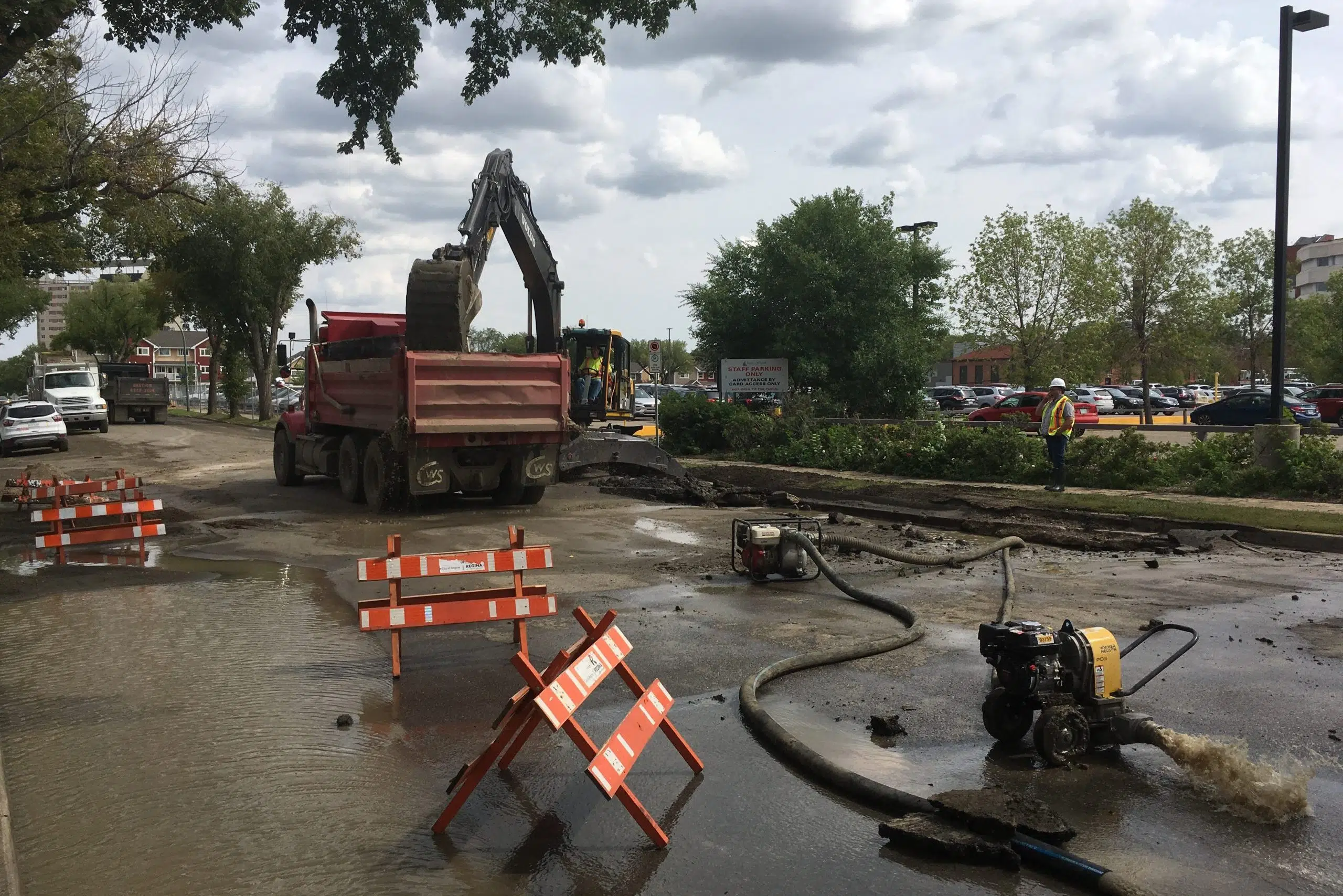Regina drivers have had an easier start to 2020 compared to the same period last year, thanks to fewer water main breaks.
As of Wednesday afternoon, the city has dealt with just 19 breaks in 2020. In the same time frame a year ago, there were at least 72 breaks.
That means less pooling water on the roads and fewer construction crews out on the roads repairing the breaks and delaying traffic.
Pat Wilson, the City of Regina’s director of water, waste and environment, said there has yet to be a water main break in the city in March. In 2019, there were 81 in March alone.
“We are down from average. Last year was an extremely high year for that first quarter; we broke records in February and March,” Wilson said.
She attributed the lower numbers this year in part to the milder winter temperatures in Regina.
“It’s a combination of things,” she said. “It’s not just the freeze-thaw. The frost line has to be far enough down.”
Wilson said frost line refers to the depth in the ground at which there’s a freezing temperature.
“If the frost line is fairly well down, either a thaw or a freeze (an extreme cold or a warming up) will push the frost a little further down …,” she said. “We just didn’t have as deep a frost this year.”
Last year’s weeks-on-end extreme cold pushed the frost line deep into the ground, Wilson said, hence the excessive water main breaks.
She also pointed to dry soil heading into the 2018-19 winter season, which she said “pushes the frost line down faster.”
As for the rest of March, Wilson said: “We have very little snow cover right now, so if we were to get an extended cold snap, that does leave us vulnerable.”
She said her unit isn’t expecting that, but is prepared for it.
The average number of water main breaks for January is between 12 and 14 and for February is between 18 and 20. So far this year, Regina dealt with 11 breaks in January and eight in February.











